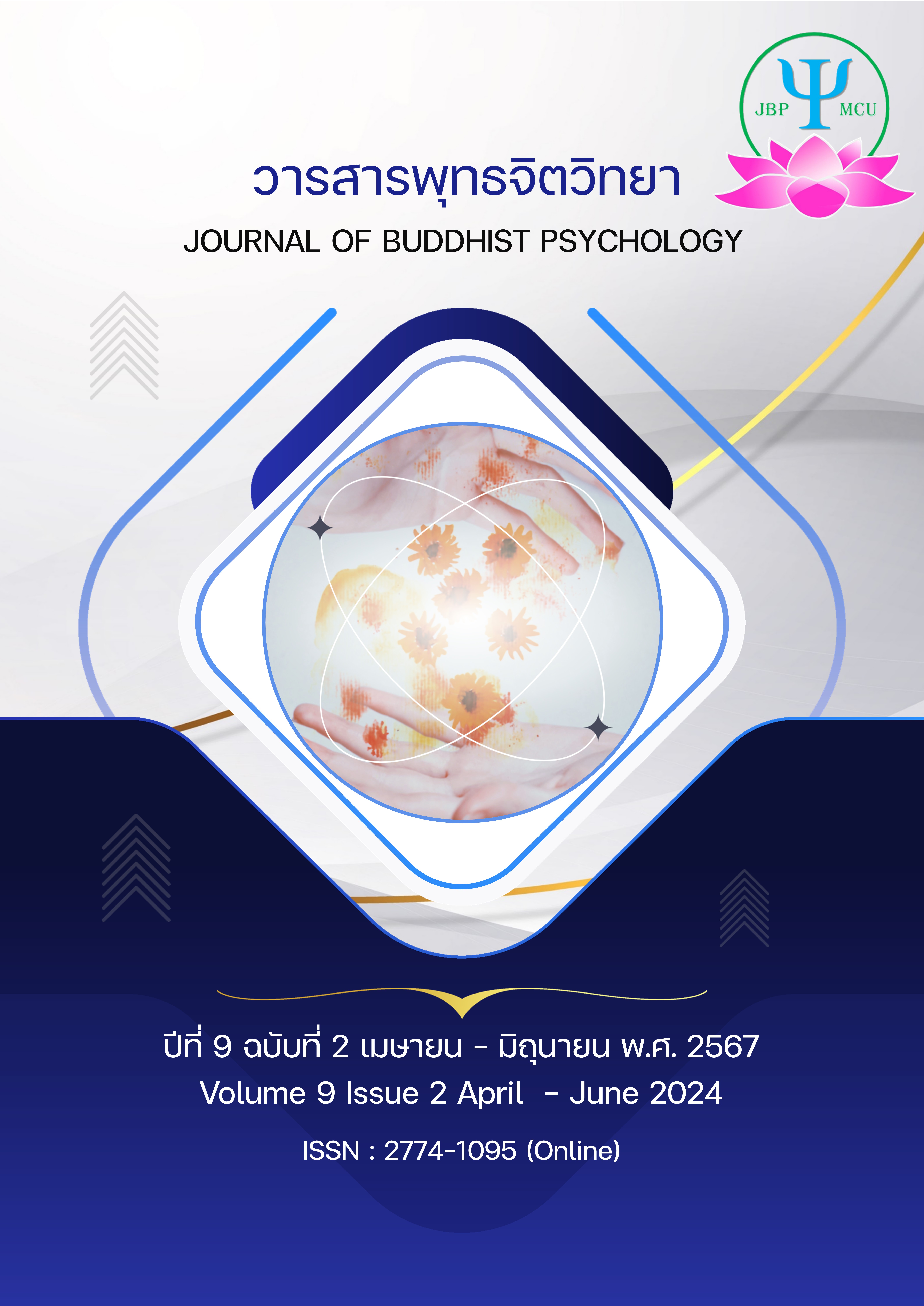Application of Buddhist Doctrines in Caring for Children with Learning Disabilities
Main Article Content
บทคัดย่อ
In the context of children with learning disabilities and their care, the author employed a literature review method to explore how Buddhist doctrines can lead a fulfilling life in society and contribute to a high quality of life. The study's findings indicated that learning disabilities are psychiatric disorders often identified in childhood. Beyond being classified as a psychiatric disorder, learning disabilities can also be categorized as the sixth type of disability that necessitates governmental provision of various welfare services. However, presently, there is a disproportionately low number of individuals applying for registration under the sixth category of disabilities compared to other types. Given these challenges, alongside governmental oversight, the application of Buddhist doctrines, for example, Brahmavihāra, which serve as fundamental guidelines for caring for children with learning disabilities, is proposed. This includes incorporating the four Brahmavihāra principles (Mettā, Karunā, Muditā, Upekkhā), which can inspire children with learning disabilities to lead contented lives, feel a sense of self-worth, integrate harmoniously into society, enjoy a high-quality of life, and potentially become valuable citizens of the country in the future.
Article Details

อนุญาตภายใต้เงื่อนไข Creative Commons Attribution-NonCommercial-NoDerivatives 4.0 International License.
เอกสารอ้างอิง
Act on Empowerment of Persons with Disabilities. (2012). Cited in the research report on the Development of Educational Disability Screening Process for Learning Disabilities, Office of Special Education Administration, Office of the Basic Education Commission 2017. 17-18.
Children's Rights Protection Center Foundation. Preventing violence against children. Retrieved August 19, 2019, from https://www.thaichildrights.org/articles/info-graphichappyhome/
Itthianankul, W. (2023). Children with learning disabilities. Foundation for Children with Disabilities. Retrieved September 16, 2023, from https://fcdthailand.org/library-type/Children with learning problems
Ministry of Social Development and Human Security, Department of Empowerment of Persons with Disabilities. (2019). Statistics reporting information on the situation of persons with disabilities in Thailand. Retrieved September 15, 2023, from https://wwww.dep.go.th
Nammuang, C. (2012). Buddhism and Complete education. Retrieved September 15, 2023, from https://www.gotoknow.org/posts/444773
Piyasilp, W. (2023). Specific Learning Disorder. Retrieved September 15, 2023, from http://110.164.147.155/krnhealth_new/Documment/psychiatry/children/P.1.1.3.pdf
Saksiriphol, D. (2012). Developing students' ability to read and write words that are spelled under the standard of Grades 1-3 with learning disabilities using the P – Lips method. Bangkok: Department of Special Education, Faculty of Education, Srinakharinwirot University.
Siriratrekha, T. (2018). Handbook for caring for children's mental health, Group of learning problems. (2nd Edition). Bangkok: Prosperous Plus.
Siriratrekha, T. (2018). LD..Learning Disabilities. Retrieved September 15, 2023, from https://www.happyhomeclinic.com/sp04-d.htm


